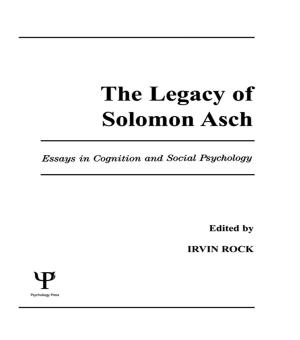| Author: | Ellen Brinks | ISBN: | 9781317180906 |
| Publisher: | Taylor and Francis | Publication: | April 15, 2016 |
| Imprint: | Routledge | Language: | English |
| Author: | Ellen Brinks |
| ISBN: | 9781317180906 |
| Publisher: | Taylor and Francis |
| Publication: | April 15, 2016 |
| Imprint: | Routledge |
| Language: | English |
The result of extensive archival recovery work, Ellen Brinks's study fills a significant gap in our understanding of women's literary history of the South Asian subcontinent under colonialism and of Indian women's contributions and responses to developing cultural and political nationalism. As Brinks shows, the invisibility of Anglophone Indian women writers cannot be explained simply as a matter of colonial marginalization or as a function of dominant theoretical approaches that reduce Indian women to the status of figures or tropes. The received narrative that British imperialism in India was perpetuated with little cultural contact between the colonizers and the colonized population is complicated by writers such as Toru Dutt, Krupabai Satthianadhan, Pandita Ramabai, Cornelia Sorabji, and Sarojini Naidu. All five women found large audiences for their literary works in India and in Great Britain, and all five were also deeply rooted in and connected to both South Asian and Western cultures. Their works created new zones of cultural contact and exchange that challenge postcolonial theory's tendencies towards abstract notions of the colonized women as passive and of English as a de-facto instrument of cultural domination. Brinks's close readings of these texts suggest new ways of reading a range of issues central to postcolonial studies: the relationship of colonized women to the metropolitan (literary) culture; Indian and English women's separate and joint engagements in reformist and nationalist struggles; the 'translatability' of culture; the articulation strategies and complex negotiations of self-identification of Anglophone Indian women writers; and the significance and place of cultural difference.
The result of extensive archival recovery work, Ellen Brinks's study fills a significant gap in our understanding of women's literary history of the South Asian subcontinent under colonialism and of Indian women's contributions and responses to developing cultural and political nationalism. As Brinks shows, the invisibility of Anglophone Indian women writers cannot be explained simply as a matter of colonial marginalization or as a function of dominant theoretical approaches that reduce Indian women to the status of figures or tropes. The received narrative that British imperialism in India was perpetuated with little cultural contact between the colonizers and the colonized population is complicated by writers such as Toru Dutt, Krupabai Satthianadhan, Pandita Ramabai, Cornelia Sorabji, and Sarojini Naidu. All five women found large audiences for their literary works in India and in Great Britain, and all five were also deeply rooted in and connected to both South Asian and Western cultures. Their works created new zones of cultural contact and exchange that challenge postcolonial theory's tendencies towards abstract notions of the colonized women as passive and of English as a de-facto instrument of cultural domination. Brinks's close readings of these texts suggest new ways of reading a range of issues central to postcolonial studies: the relationship of colonized women to the metropolitan (literary) culture; Indian and English women's separate and joint engagements in reformist and nationalist struggles; the 'translatability' of culture; the articulation strategies and complex negotiations of self-identification of Anglophone Indian women writers; and the significance and place of cultural difference.















